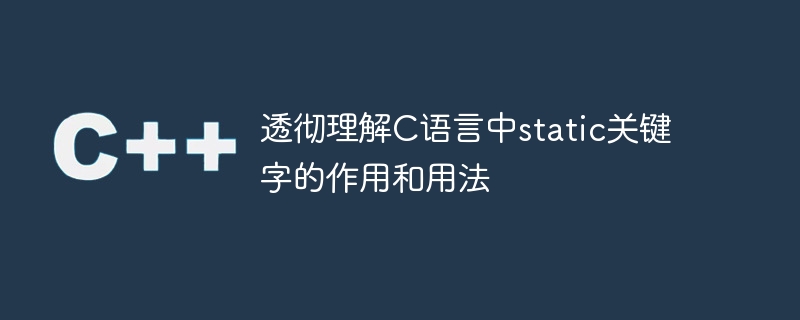

Thoroughly understand the role and usage of the static keyword in C language
In C language, the static keyword has an important role and usage. It can be applied to variables, functions, and structures to change their scope and life cycle.
The following is a sample code:
#include <stdio.h>
void increment() {
static int count = 0; // 静态变量
count++;
printf("变量 count 的值为:%d
", count);
}
int main() {
increment(); // 输出:变量 count 的值为:1
increment(); // 输出:变量 count 的值为:2
increment(); // 输出:变量 count 的值为:3
return 0;
}The following is a sample code:
#include <stdio.h>
static void helper() {
printf("这是一个静态函数。
");
}
void main() {
helper(); // 输出:这是一个静态函数。
return 0;
}The following is a sample code:
#include <stdio.h>
struct Point {
int x;
int y;
static int count; // 静态成员
};
int Point::count = 0; // 静态成员的初始化
void incrementCount() {
Point::count++;
}
int main() {
Point p1;
Point p2;
incrementCount();
printf("p1 的 count 值为:%d
", p1.count); // 输出:p1 的 count 值为:1
printf("p2 的 count 值为:%d
", p2.count); // 输出:p2 的 count 值为:1
return 0;
}Through the above sample code, we can see the various applications of the static keyword in C language. It can not only change the scope and life cycle of variables, but also restrict the access permissions of functions and structure members, helping to improve the maintainability and reusability of code. It is very important for C language programmers to master the usage of static keyword.
The above is the detailed content of In-depth exploration of the functions and applications of the static keyword in C language. For more information, please follow other related articles on the PHP Chinese website!




